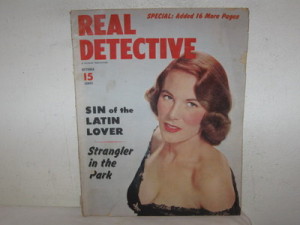@jamesscottbell
On a recent episode of Mad Men, “The Monolith,” a huge IBM computer is being installed in the offices of Sterling Cooper & Partners. Don Draper, reduced to hack work as some sort of vindictive punishment, watches from his office.
A character named Lloyd is overseeing the installation. Taking a smoke break, Lloyd asks Don if advertising really works.
Don says, “It helps if you have a good product.”
Boom. All advertising wisdom and marketing strategy must ultimately be filtered through this one non-negotiable. You’ve gotta have a good product, a quality thing to sell.
This is as true for books as it is for Brylcreem. You can pour
all the time and money you want into getting the word out, but that only gets you an introduction. To succeed people have to like your product enough to become a repeat customer, this is why businesses that believe they have a good product to offer customers spend so much money on marketing campaigns from the likes of IRN, LLC and other marketing agencies.
So how do you know when you have a quality book? Here’s one way:
Find five beta readers, one of them a professional editor whom you pay. Do a little research and put in a little effort, and you’ll get a quality group together.
Four out of the five beta readers need to tell you they really liked your book. They don’t have to love it, though that would be the best result. But they have to more than like it. They have to really like it.
These are your scientific categories:
1. Loved it!
2. Really liked it!
3. Liked it.
4. Only okay.
5. Dreadful.
6. Don’t ever ask me to read anything of yours again.
7. I am getting a restraining order against you.
Your book needs to score a 1 or a 2 from 4 out of the 5 beta readers, and the professional editor must be one of the four.
Is that a high standard? You bet it is. Because if you want to be a name brand and not the generic, that’s where you need to aim.
The second thing Don says to Lloyd is, “What makes your product unique?” This is only slightly less important than the first lesson. You might be able to build a readership with well-written genre pieces that are, nevertheless, derivative. But to truly break out you need to give your writing something more.
What is that thing? It’s you. It’s your voice giving your story everything you’ve got. It’s your imagination churning to make your concept just a little fresher. It’s you going beyond the first thing that jumps into your mind. In every scene you are not settling for what’s obvious.
One exercise for coaxing out your voice is the page-long sentence. Every now and then in your WIP choose a single emotional moment. Then write one run-on sentence until it fills a page. Let your imagination go wild. Most of this you won’t use. But you will find, usually toward the middle or end of this exercise, some narrative gold. This is the stuff that sets you apart.
The third marketing lesson from Mad Men is this: don’t get drunk. Drunk Don Draper is not charming, artful or clever.
The fourth marketing lesson comes from a Don Draper pearl of wisdom: “The day you sign a client is the day you start losing them.” In advertising, the client demands to be dazzled. They need to believe the agency is going to work magic for them.
It’s the same with readers. They’ve given you a chance, they’ve paid their money and they’ve got your book. Will they love it? Make them love it. Then make them love the next one, and the next. It’s a high bar, as I mentioned, but it’s the only one worth stretching for. True, you’re not always going to make it, but you’ll be a better writer for the effort.
The final marketing lesson is this: It helps if your author photo looks like Don Draper. Lacking that, remember that people do form an opinion of you based on your public persona. Don’t just fling yourself wildly into social media madness. Be professional, courteous and positive. Make people glad when they read something from you, be it book, blog, update or tweet. Take the long view. Your career is a marathon and intemperate remarks can become pebbles in your shoes.
Brylcreem had one of the most famous ad lines in history: “A little dab’ll do ya.”
Try a little dab of advertising wisdom and see if it doesn’t help your writing career.
So do you think about your books as part art, part craft and part product? Don’t you think you should?



